Ava DuVernay Says Racism And Sexism To Blame For Audiences Being More Excited About ‘Oppenheimer’ Than Her Isabel Wilkerson Biopic ‘Origin’
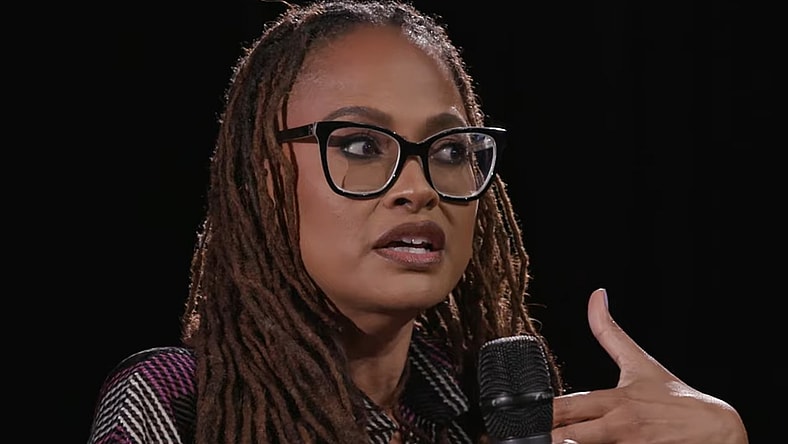
According to director Ava DuVernay, the lack of interest in her upcoming Isabel Wilkerson biopic Origin compared to the similarly-structured Oppenheimer has nothing to do with the latter’s historical importance and everything to do with audiences’ own racist and sexist attitudes.
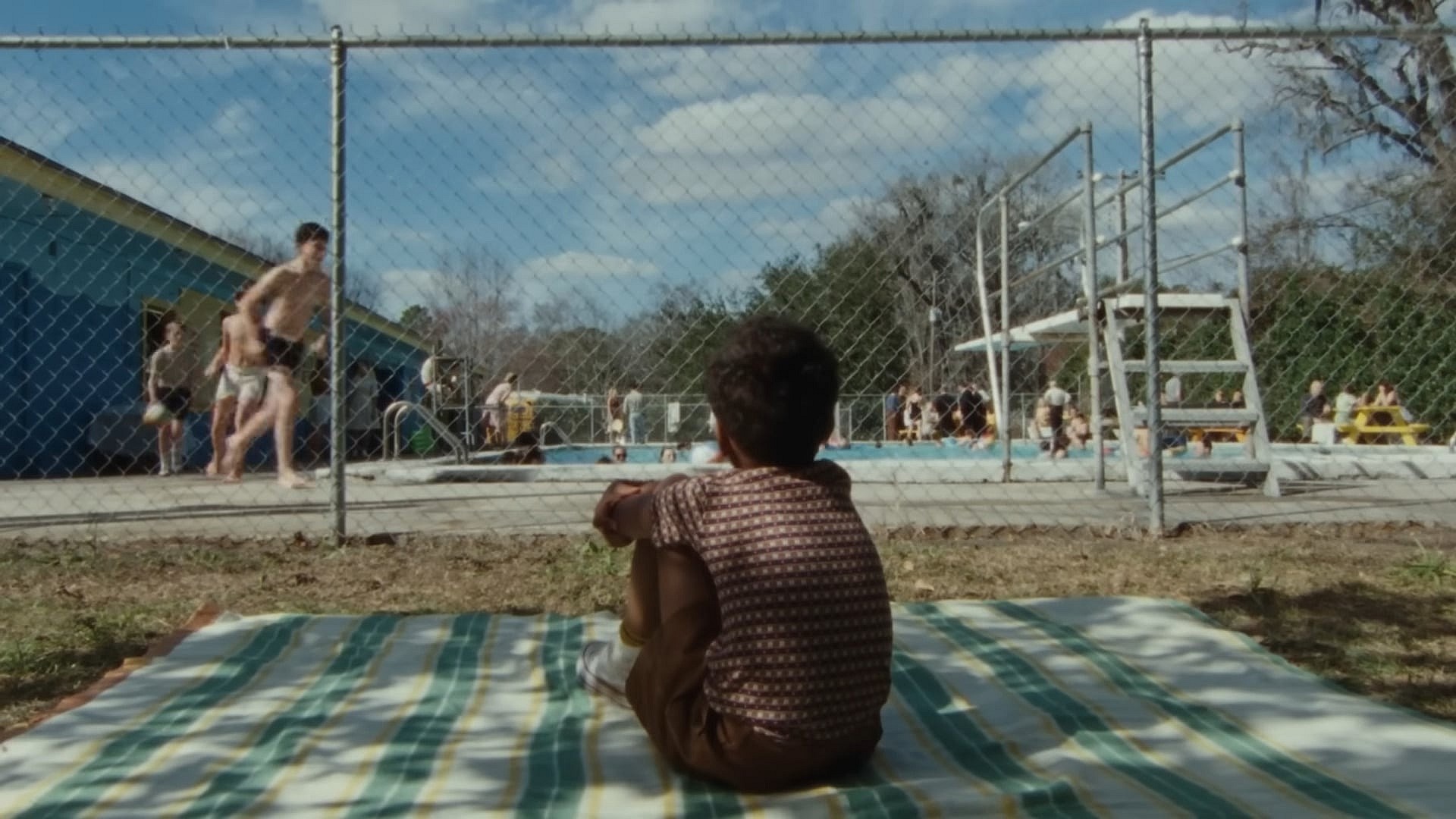
RELATED: With Ratings In A Catastrophic Nosedive, Ava DuVernay’s Naomi Axed After One Season
Born in 1961, Wilkerson is perhaps best known for having been, per the National Association of Black Journalists, “the first black journalist to win a Pulitzer Prize for individual reporting and first black woman to win a journalism Pulitzer”.
The 1994 winner in the Feature Writing category, Wilkerson received the award from Columbia University “for her profile of a fourth-grader from Chicago’s South Side and for two stories reporting on the Midwestern flood of 1993.”

From there, Wilkerson would go on to spend roughly fifteen years researching and authoring The Warmth of Other Suns: The Epic Story of America’s Great Migration.
Released in 2010 to widespread praise from mainstream media outlets, the book provides a historical examination of three popular routes taken by black Americans in emigrating north from the southern United States between 1915 and 1970.
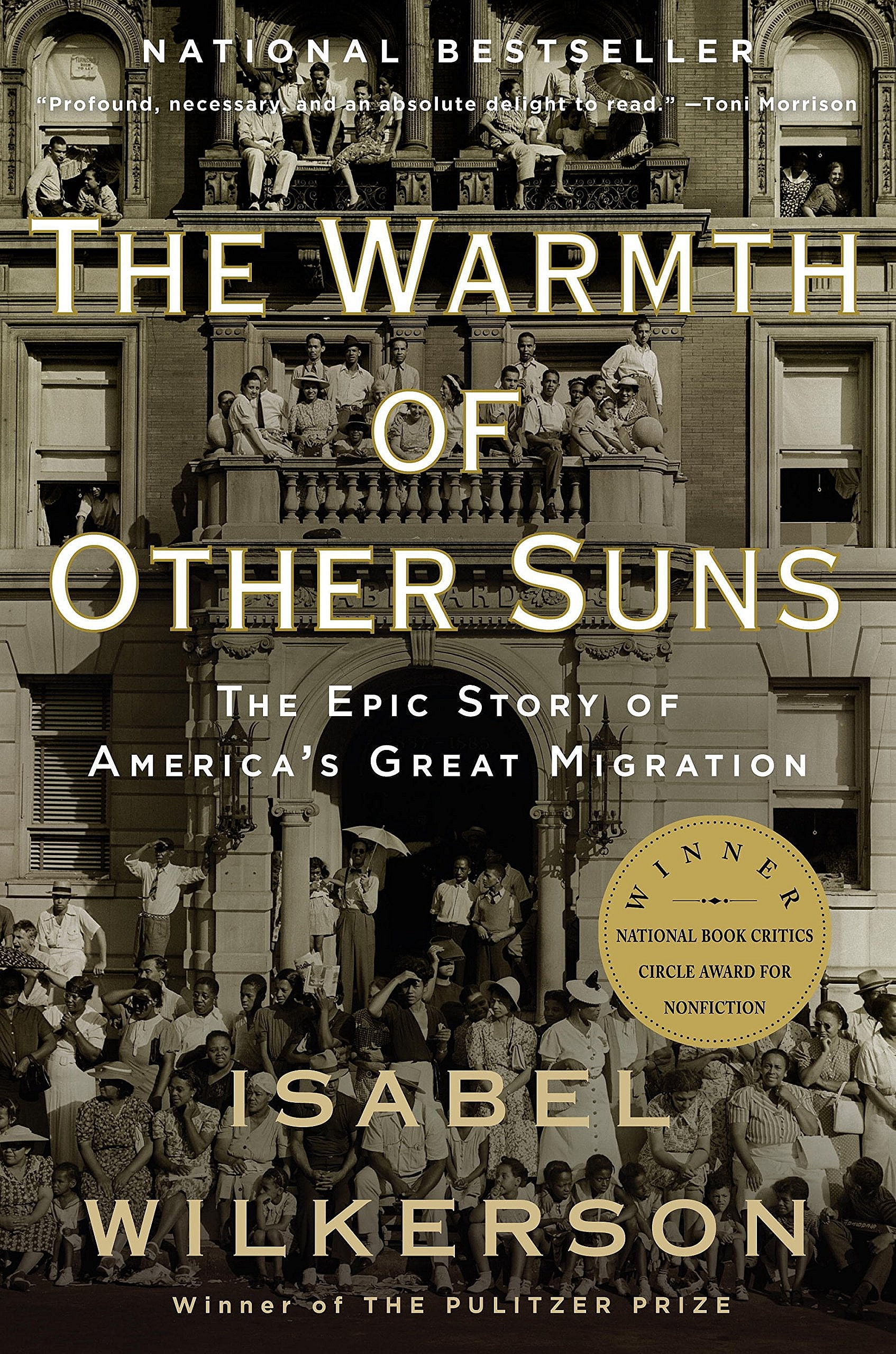
Ten years later, Wilkerson next published Caste: The Origins of Our Discontents.
As described by the book’s publisher Pengiun Random House, Caste argues that “America today and throughout its history has been shaped by a hidden caste system, a rigid hierarchy of human rankings.”
“Beyond race, class, or other factors, there is a powerful caste system that influences people’s lives and behavior and the nation’s fate,” reads the book’s official synopsis. “Linking the caste systems of America, India, and Nazi Germany, Wilkerson explores eight pillars that underlie caste systems across civilizations, including divine will, bloodlines, stigma, and more.”
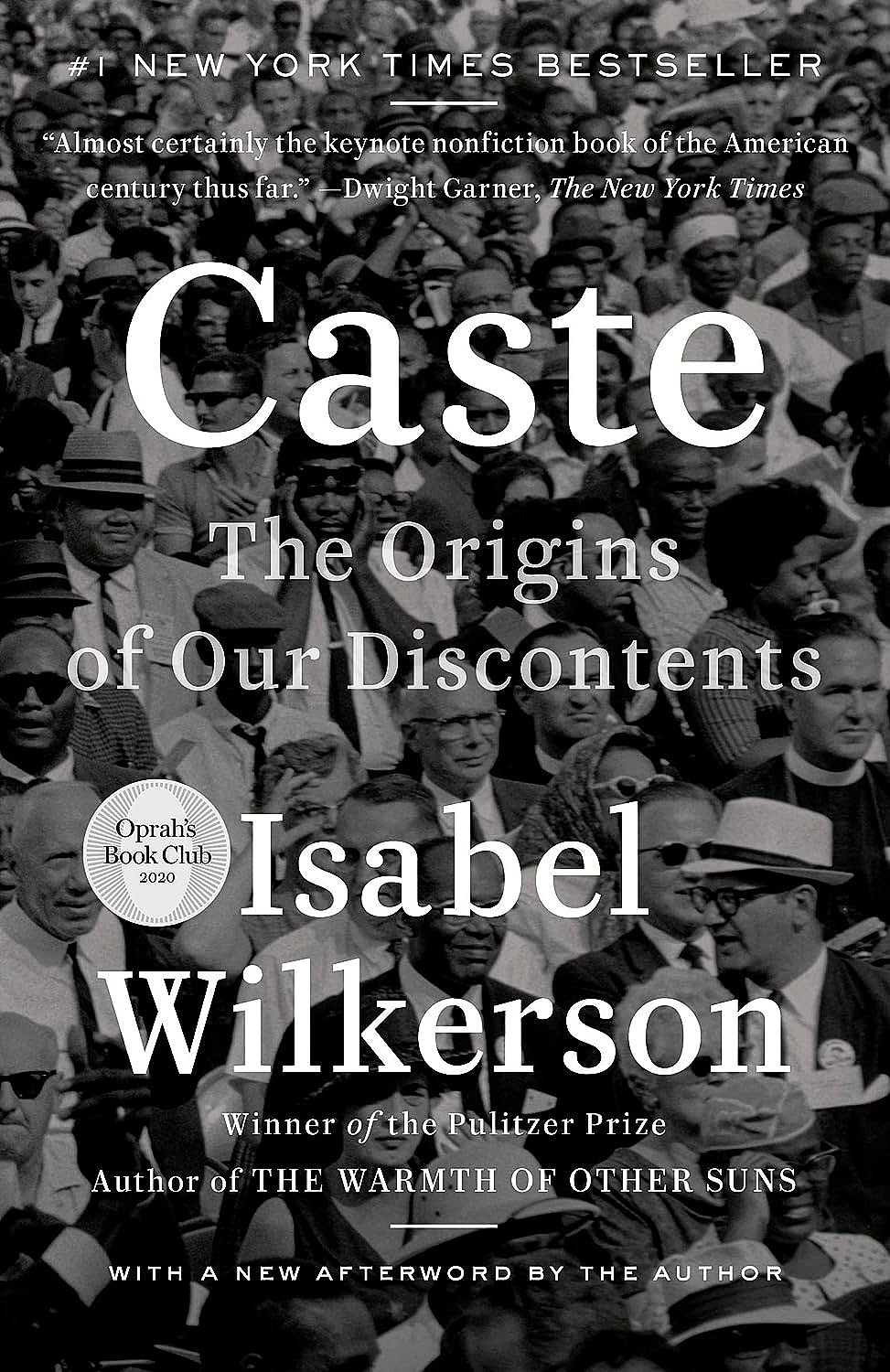
It is Wilkerson’s argument in Caste, as well as her general life story, that inspired DuVernay to adapt the book into a semi-biographical film about the journalist.
Speaking on her upcoming film to Variety’s Angelique Jackson, the woman once attached to helm DC’s New Gods film explained, “It has biographical elements, so in some ways, it’s a biopic. In some ways, it’s docu-drama. In some ways, it’s just a straight up adaptation of these really beautiful and tragic moments in history.”
“The goal was to try to stitch together a tapestry, to create a quilt — that’s how I think of it — and allow myself to color outside the lines of what I’ve been told,” she told Jackson. “Just to throw all that out and tell the story from my gut. And it came from reading this book.”
“The core pieces of the puzzle are true; the losses that she experiences in the film were real losses that Isabel Wilkerson herself endured,” she continued in defense of the story’s authenticity. “The very short amount of time — less than two years — in which these losses happened is true. The fact that she worked and wrote this book in the amount of time in which her grief was at full throttle, when she was going through this deep loss, is fact. And the fact that she came out with something so transformative and triumphant in the book Caste was to me a story in and of itself, separate and apart from what she shares and teaches in the book.”
“The film tries to align both stories — personal trauma and our cultural trauma — and understand that the only way to solve or heal any of it is to walk through it,” she added. “And the film tries to walk people through both.”

Following further discussions regarding her time working on the film, DuVernary was eventually pressed by Jackson, “What does it take to get the audience to watch a movie like Origin?”
“Because mid-way through I realized, ‘This is a process film,'” the reporter elaborated on her initial question. “A movie about someone making something. I just had a conversation about She Said, which I loved, and I was frustrated because it feels when there’s process films about women and people of color, people are not as intrigued. I don’t know that this is a fair question to ask you, but I am curious what you make of the way to get the audience in the door. Because it is complicated when asking people to watch material that is challenging.”
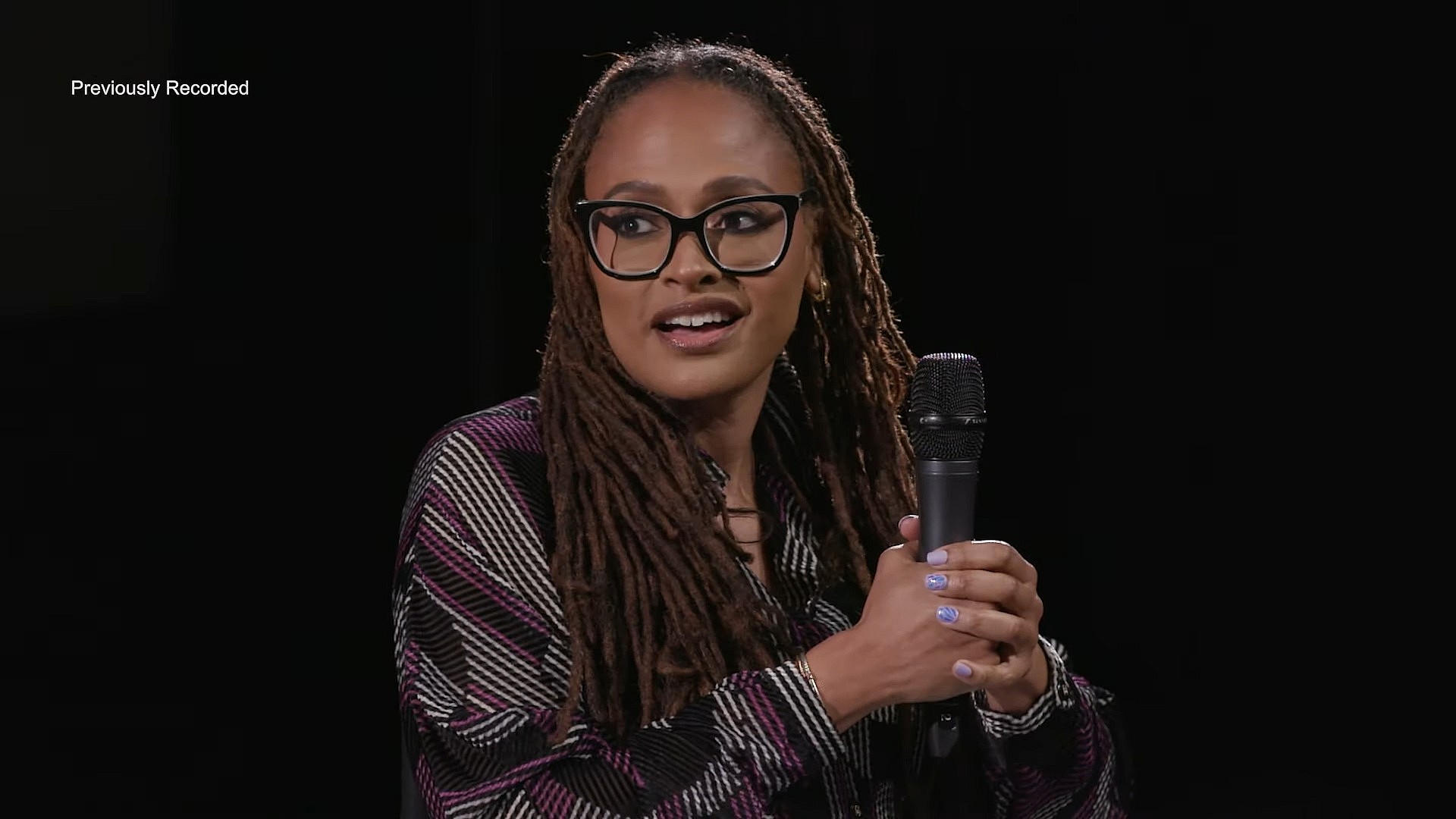
In turn, DuVernay unsurprisingly blamed the existence of this ‘challenge’ on the inherent racism and sexism of general audiences.
“You’re right,” the director affirmed in reply. “It’s challenging to watch a process film about a man making a bomb [Oppenheimer]. He’s a man who was trying to do something and couldn’t quite describe it to anybody else, but he knew it. Isabel is a woman who knows something and can’t quite describe it, but she knows it, and she’s gonna find it.”
“You’ll sit through three hours of his process,” she then asserted. “Will you sit through two hours of her process?”
“I think that is the only proposition,” said DuVernay. “It’s not talking about the merit of the films. It’s talking about the very idea of following a woman through an intellectual process, an intellectual exercise. Then you make that a Black person. Then you make that a Black woman. Is it valid enough for you to go on that journey with her?”

Concluding her thoughts on the topic, DuVernay posited, “If you’re looking at films like She Said or Women Talking, there is a real question as to what it takes to center that voice and that narrative.”
“We’ve been trained that that center is not usually the center,” she elaborated. “That [voice] usually is off-center or the minor character or not usually in this movie. I’m excited to be making work at a time where you have Nomadland, and you have She Said, and you have Women Talking, and these women are being centered in these ways. It’s about an intellectual as well as emotional pursuit, and that they are the center of the story. I hope that Origin joins that canon of films.”

As of writing, film distributor Neon has acquired the release rights to Origin.
However, the company has not yet confirmed an official release schedule.
NEXT: Ava DuVernay and Tom King’s New Gods Film Dead At Warner Bros.
